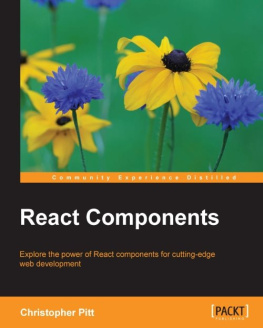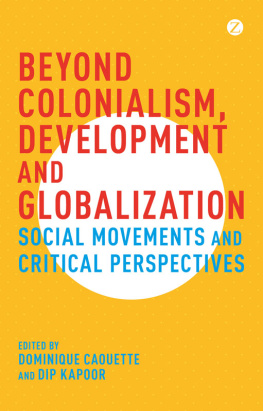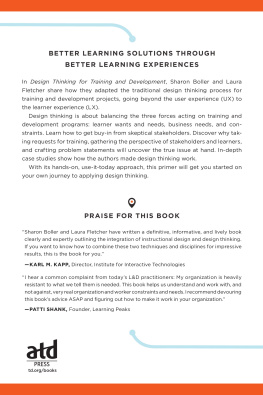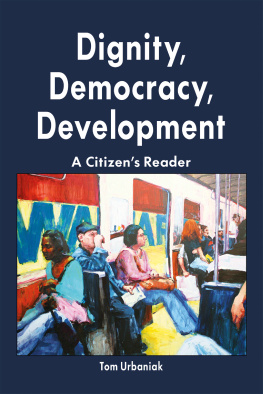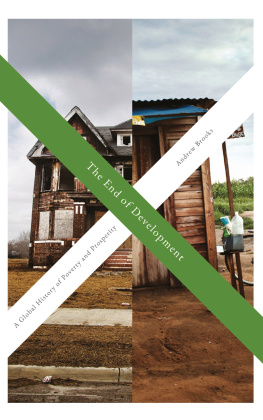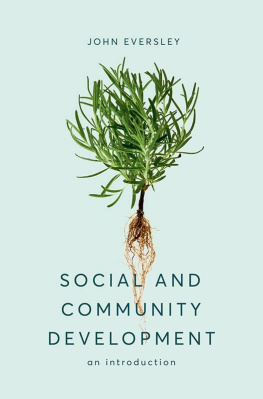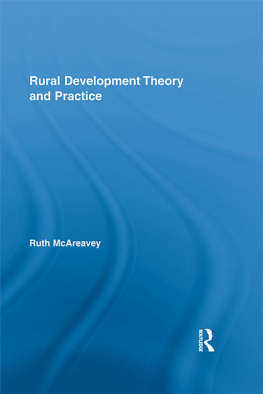About the Editors
Majid Rahnema was born in Tehran in 1924. A career ambassador for much of his life, he represented Iran at the United Nations for twelve successive sessions. Among the many posts he held were UN Commissioner for Rwanda and Burundi (1959), Chairman of the Fourth (Decolonization) Committee of the General Assembly (1965), Member of the Executive Board of UNESCO (197478) and of the Council of the United Nations University (197480). In 1967 he was asked to form his countrys first Ministry of Science and Higher Education, a post from which he resigned in frustration four years later. He subsequently founded an Institute for Endogenous Development Studies, which, inspired by the educational ideas of Paulo Freire and the bottom-up vision of pioneers of the time, worked in several neglected villages to try to discover alternatives to the authoritarian and top-down development pursued by the Shah. Having left Iran some time before his countrys revolutionary upheavals, he was invited by Bradford Morse, the UNDP Administrator at the time, to become the UNDPs Representative in Mali, and later his special advisor for Grassroots and NGO Matters, in which role he sought to open a window on the concerns of the drop-outs in the development process. Following his retirement in 1985, he was a Visiting Professor at the University of California at Berkeley for six years. He has held a similar position at Pitzer, Claremont Colleges since 1993. He is currently a visiting professor at the American University of Paris.
Victoria Bawtree was born in Australia. Educated in England, she has a degree in economics from London University. She has spent over thirty years of her life in Italy, during most of which time she edited Ideas and Action, a journal of the Food and Agriculture Organization. In the late 1950s she joined the social reformer Danilo Dolci in Sicily as a volunteer, after which she spent two years in the USA working as a speech-writer with the Iranian and Egyptian Missions to the United Nations. In the early 1970s she founded the Human Rights Information Group for FAO staff; during this time she actively supported the African liberation movements and participated in the work of the International Tribunal on the Rights and Liberation of Peoples. In 1979 she became a founding member of the Research and Information Centre on Eritrea (RICE), and in the early 1980s set up the 1% for Development Fund in Rome. She now lives in the Alpes de Haute Provence, in Southern France, where she has helped to create an association to promote local social, cultural and ecological issues.
The
Post-Development
Reader
Edited by Majid Rahnema
with Victoria Bawtree
Zed Books
London&New Jersey
University Press Ltd
Dhaka
Fernwood Publishing
Halifax, Nova Scotia
David Philip
Cape Town
The Post-Development Reader was first published in 1997 by:
In Bangladesh:
The University Press Ltd, Red Crescent Building,
114 Motijheel C/A, PO Box 2611, Dhaka 1000.
In Southern Africa:
David Philip Publishers (Pty Ltd), 208 Werdmuller Center,
Claremont 7735, South Africa.
In Canada:
Fernwood Publishing Ltd, PO Box 9509, Station A,
Halifax, Nova Scotia, Canada B3K 553.
In the rest of the world:
Zed Books Ltd, 7 Cynthia Street, London N1 9JF, UK, and
165 First Avenue, Atlantic Highlands, New Jersey 07716, USA.
Second impression 1998.
Editorial copyright Majid Rahnema and Victoria Bawtree 1997
Copyright individual contributors 1997
The moral rights of the authors of this work have been asserted by them
in accordance with the Copyright, Designs and Patents Act, 1988.
Cover design by Andrew Corbett.
Designed and typeset in Monotype Bembo by
Lucy Morton & Robin Gable, Grosmont.
Printed and bound in Malaysia by Forum.
All rights reserved.
Library of Congress Cataloging in Publication Data
The post development reader / compiled and introduced by Majid Rahnema
with Victoria Bawtree
p.cm.
Includes bibliographical references and index.
ISBN 1 85649 473 X (hb). ISBN 1 85649 474 8 (pbk.)
1. Subsistence economy.2. Economic development.
3. Acculturation.4. Economic anthropology.I. Rahnema, Majid,
1924 .II. Bawtree, Victoria, 1934
GN448.2.P67 1997 9625685
306.3dc20 CIP
Canadian Cataloguing in Publication Data
The post-development reader.
Includes bibliographical references and index
ISBN 1-895686-84-9
1. Subsistence economy.2. Economic development.
3. Acculturation.4. Economic anthropology.I. Rahnema, Majid, 1924
II. Bawtree, Victoria, 1934
GN448.2.P67 1997 306.3 C97-950060-5
A catalogue record for this book is available from the British Library
ISBN 1 85649 473 X (Hb)
ISBN 1 85649 473 8 (Pb)
Bangladesh: ISBN 984 051389 3 Pb
Southern Africa: ISBN 86486 331 4 Pb
Canada: ISBN 1 895686 84 9 Pb
Rest of world: ISBN 1 85649 473 X Hb; 1 85649 474 8 Pb
Contents
Introduction
Majid Rahnema
Part One The Vernacular World
The Original Affluent Society
Marshall Sahlins
Learning from Ladakh
Helena Norberg-Hodge
The Economy and Symbolic Sites of Africa
Hassan Zaoual
Our Responsibility to the Seventh Generation
Linda Clarkson, Vern Morrissette and Gabriel Regallet
The Spiral of the Rams Horn: Boran Concepts of Development
Gudrun Dahl and Gemetchu Megerssa
Part Two The Development Paradigm
The Idea of Progress
Teodor Shanin
Faust, The First Developer
Marshall Berman
The Making and Unmaking of the Third World through Development
Arturo Escobar
Development as Planned Poverty
Ivan Illich
Twenty-six Years Later
Ivan Illich in conversation with Majid Rahnema
Development and the Peoples Immune System: The Story of Another Variety of AIDS
Majid Rahnema
Part Three The Vehicles of Development
Paradoxical Growth
Serge Latouche
The Agony of the Modern State
Rajni Kothari
Education as an Instrument of Cultural Defoliation: A Multi-Voice Report
Joseph Ki-Zerbo, Cheikh Hamidou Kane, Jo-Ann Archibald, Edouard Lizop and Majid Rahnema
Western Science and Its Destruction of Local Knowledge
Vandana Shiva
Colonization of the Mind
Ashis Nandy
The One and Only Way of Thinking
Ignacio Ramonet
The New Cultural Domination by the Media
James Petras
How the United Nations Promotes Development through Technical Assistance
Pierre de Senarclens
Part Four Development in Practice
How the Poor Develop the Rich
Susan George
To Be Like Them
Eduardo Galeano
Development and Bureaucratic Power in Lesotho
James Ferguson
Transmigration in Indonesia: How Millions Are Uprooted
Graham Hancock
Women in Development: A Threat to Liberation
Pam Simmons
Tehri: A Catastrophic Dam in the Himalayas
Peter Bunyard
The Development Game
Leonard Frank
Part Five Towards the Post-Development Age
From Global Thinking to Local Thinking
Gustavo Esteva and Madhu Suri Prakash
The Need for the Home Perspective
Wolfgang Sachs
Basta! Mexican Indians Say Enough!
Gustavo Esteva



